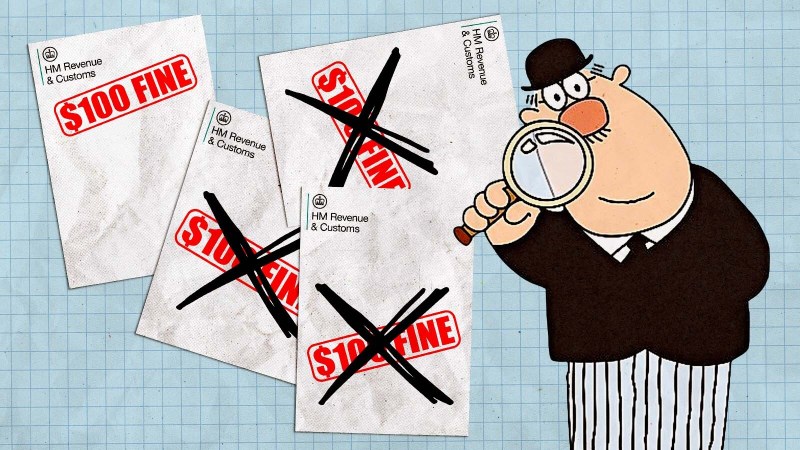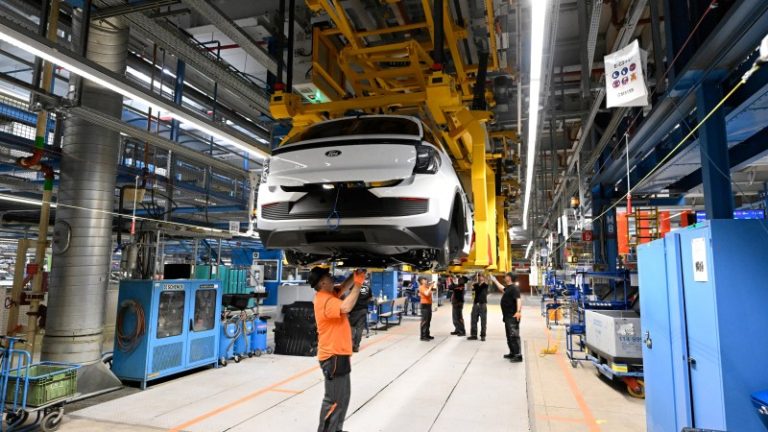Fined by HMRC? Here’s why you should take on the taxman
Three out of four taxpayers who challenged an automatic late filing or payment penalty from HM Revenue & Customs in April, May or June had their fines overturned or reduced when reviewed by the taxman.
The tax office issues automatic fines if you miss tax return filing and payment dates, even if you don’t owe any tax.
But official figures show that you have a great chance of getting out of those fines if you complain. Some 3,807 automatic fines were reviewed by the taxman after a challenge in the second quarter of the year, and 2,755 were cancelled. Another 24 were reduced, giving taxpayers a 73 per cent success rate in challenging fines.
In the same period last year, 68 per cent of fines that were appealed were overturned once reviewed.
To challenge a penalty notice, you first have to write to HMRC. If no agreement can be reached at this stage, you can usually request an internal review, which will be done by an officer who was not involved in the original case.
John Hood from the accountancy firm Moore Kingston Smith and a former inspector for HMRC, said: “Taxpayers fined for late payment or filing who consider this is incorrect would be well-advised to challenge because the numbers show you have a good chance of getting it overturned.”
In 2023-24 some 70 per cent of the 50,881 appeals against automatic fines and surcharges were cancelled.
• How to check your tax code and what it means
You have a lower chance of successfully challenging decisions issued by an HMRC inspector than you do of overturning an automatic fine. There were 461 reviews of inspector’s decisions during April, May and June and 29 per cent were overturned or reduced — a similar proportion to last year.
Anyone fined by HMRC has 30 days from the date of the notice to appeal against it in writing.
Hood said: “It’s important to remember that the clock starts ticking on the appeal window from the date on the notice, not the date you receive it.
• HMRC admits it will never recover £19bn of unpaid tax
“This causes issues because HMRC has been known to be late in sending out these letters or they can get caught in postal delays.”
Customer service at the tax office has been in crisis since the pandemic with calls going unanswered and a growing backlog of letters, with some taxpayers waiting a year for replies to their queries.
HMRC closed its self-assessment helpline between June and September last year and restricted it to “priority calls” only in the run up to the January tax deadline.
The National Audit Office found that HMRC failed to answer up to 45 per cent of calls to its helpline last year and callers who did manage to speak to an adviser waited an average of 23 minutes, up from five minutes in 2019.
Even though it has become harder to get answers to any queries you may have about your tax return, you may still need a reasonable excuse for an appeal. If you can prove you took due care to get your tax return right or that you have a good reason for being unable to file on time — such as a medical emergency — you have a good chance of overturning the fine.
Providing evidence will help your case. If you or someone in your family was taken ill, then try to provide a doctor’s note or hospital car park receipts. If you had computer or wifi problems then invoices from computer repairs or messages from your broadband firm could help your case.
• How to complete a self-assessment tax return
One UK taxpayer who lives abroad and is not a UK citizen but submits a tax return for a property here was issued £1,600 in penalties last year for submitting a paper return four days late. The taxpayer, who asked not to be named, did not owe any tax and could not complete the return online without a national insurance number. They called HMRC 17 times in six weeks trying to get help in overturning the fine, but never managed to get through.
Their eventual appeal was successful earlier this year when they were able to prove postal delays and unanswered calls to HMRC.
In May Money reported that the tax office was using AI recruitment, with some customer service staff not having any contact with a human being until they turned up for their first day at work.
There have also been issues with the automated letter printing and posting service, which has led to delays.
HMRC said: “We charge penalties to encourage customers to meet their obligations, while acting as a sanction for those who don’t. Most automated penalties we issue are correct, with just one in every 140 requesting a review. When there is a reasonable excuse, we will cancel the penalty.”






